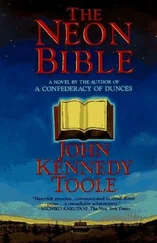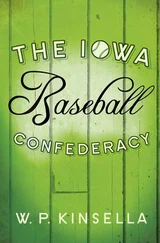John Toole - A Confederacy of Dunces
Здесь есть возможность читать онлайн «John Toole - A Confederacy of Dunces» весь текст электронной книги совершенно бесплатно (целиком полную версию без сокращений). В некоторых случаях можно слушать аудио, скачать через торрент в формате fb2 и присутствует краткое содержание. Год выпуска: 1980, Жанр: Современная проза, на английском языке. Описание произведения, (предисловие) а так же отзывы посетителей доступны на портале библиотеки ЛибКат.
- Название:A Confederacy of Dunces
- Автор:
- Жанр:
- Год:1980
- ISBN:нет данных
- Рейтинг книги:5 / 5. Голосов: 1
-
Избранное:Добавить в избранное
- Отзывы:
-
Ваша оценка:
- 100
- 1
- 2
- 3
- 4
- 5
A Confederacy of Dunces: краткое содержание, описание и аннотация
Предлагаем к чтению аннотацию, описание, краткое содержание или предисловие (зависит от того, что написал сам автор книги «A Confederacy of Dunces»). Если вы не нашли необходимую информацию о книге — напишите в комментариях, мы постараемся отыскать её.
A Confederacy of Dunces — читать онлайн бесплатно полную книгу (весь текст) целиком
Ниже представлен текст книги, разбитый по страницам. Система сохранения места последней прочитанной страницы, позволяет с удобством читать онлайн бесплатно книгу «A Confederacy of Dunces», без необходимости каждый раз заново искать на чём Вы остановились. Поставьте закладку, и сможете в любой момент перейти на страницу, на которой закончили чтение.
Интервал:
Закладка:
“Good,” Miss Lee answered. “Beat it. Trade from people like you is the kiss of death.”
After the padded door had closed behind the Reillys, Miss Lee said, “I never liked mothers. Not even my own.”
“My mother was a whore,” the man with the racing form said, not looking up from his paper.
“Mothers are full of shit,” Miss Lee observed and took off her leather coat. “Now let’s you and me have a little talk, Darlene.”
Outside, Mrs. Reilly took her son’s arm for support, but, as much as they tried, they moved forward very slowly, although they seemed to move sideward more easily. Their walking had developed a pattern: three quick steps to the left, pause, three quick steps to the right, pause.
“That was a terrible woman,” Mrs. Reilly said.
“A negation of all human qualities,” Ignatius added. “By the way, how far is the car? I’m very tired.”
“On St. Ann, honey. Just a few blocks.”
“You left your hat in the bar.”
“Oh, I sold it to that young man.”
“You sold it? Why? Did you ask me whether I wanted it to be sold? I was very attached to that hat.”
“I’m sorry, Ignatius. I didn’t know you liked it so much. You never said nothing about it.”
“I had an unspoken attachment to it. It was a contact with my childhood, a link with the past.”
“But he gave me fifteen dollars, Ignatius.”
“Please. Don’t talk about it anymore. The whole business is sacrilegious. Goodness knows what degenerate uses he will find for that hat. Do you have the fifteen dollars on you?”
“I still got seven left.”
“Then why don’t we stop and eat something?” Ignatius pointed to the cart at the corner. It was shaped like a hot dog on wheels. “I believe that they vend foot-long hot dogs.”
“Hot dogs? Honey, in all this rain and cold we gonna stand outside and eat weenies?”
“It’s a thought.”
“No,” Mrs. Reilly said with somewhat beery courage. “Let’s get home. I wouldn’t eat nothing outta one of them dirty wagons anyway. They all operated by a bunch of bums.”
“If you insist,” Ignatius said, pouting. “Although I am rather hungry, and you have, after all, just sold a memento of my childhood for thirty pieces of silver, so to speak.”
They continued their little pattern of steps along the wet flagstones of Bourbon Street. On St. Ann they found the old Plymouth easily. Its high roof stood above all the other cars, its best feature. The Plymouth was always easy to find in supermarket parking lots. Mrs. Reilly climbed the curb twice trying to force the car out of the parking place and left the impression of a 1946 Plymouth bumper in the hood of the Volkswagen in the rear.
“My nerves!” Ignatius said. He was slumped down in the seat so that just the top of his green hunting cap appeared in the window, looking like the tip of a promising watermelon. From the rear, where he always sat, having read somewhere that the seat next to the driver was the most dangerous, he watched his mother’s wild and inexpert shifting with disapproval. “I suspect that you have effectively demolished the small car that someone innocently parked behind this bus. You had better succeed in getting out of this spot before its owner happens along.”
“Shut up, Ignatius. You making me nervous,” Mrs. Reilly said, looking at the hunting cap in the rearview mirror.
Ignatius got up on the seat and looked out of the rear window.
“That car is a total wreck. Your driver’s license, if you do indeed have one, will doubtlessly be revoked. I certainly wouldn’t blame them.”
“Lay down there and take a nap,” his mother said as the car jerked back again.
“Do you think that I could sleep now? I’m afraid for my life. Are you sure that you’re turning the wheel the right way?”
Suddenly the car leaped out of the parking spot and skidded across the wet street into a post supporting a wrought-iron balcony. The post fell away to one side, and the Plymouth crunched against the building.
“Oh, my God!” Ignatius screamed from the rear. “What have you done now?”
“Call a priest!”
“I don’t think that we’re injured, Mother. However, you have just ruined my stomach for the next few days.” Ignatius rolled down one of the rear windows and studied the fender that was pressed against the wall. “We shall need a new headlight on this side, I imagine.”
“What we gonna do?”
“If I were driving, I would put the auto in reverse and back gracefully away from the scene. Someone will certainly press charges. The people who own this wreck of a building have been waiting for an opportunity like this for years. They probably spread grease on the street after nightfall hoping that motorists like you will spin toward their hovel.” He belched. “My digestion has been destroyed. I think that I am beginning to bloat!”
Mrs. Reilly shifted the worn gears and inched slowly backward. As the car moved, the splintering of wood sounded over their heads, a splintering that changed into splitting of boards and scraping of metal. Then the balcony was falling in large sections, thundering on the roof of the car with the dull, heavy thud of grenades. The car, like a stoned human, stopped moving, and a piece of wrought-iron decoration shattered a rear window.
“Honey, are you okay?” Mrs. Reilly asked wildly after what seemed to be the final bombardment.
Ignatius made a gagging sound. The blue and yellow eyes were watering.
“Say something, Ignatius,” his mother pleaded, turning round just in time to see Ignatius stick his head out of a window and vomit down the side of the dented car.
Patrolman Mancuso was walking slowly down Chartres Street dressed in ballet tights and a yellow sweater, a costume which the sergeant said would enable him to bring in genuine, bona fide suspicious characters instead of grandfathers and boys waiting for their mothers. The costume was the sergeant’s punishment. He had told Mancuso that from now on he would be strictly responsible for bringing in suspicious characters, that police headquarters had a costume wardrobe that would permit Mancuso to be a new character every day. Forlornly, Patrolman Mancuso had put on the tights before the sergeant, who had pushed him out of the precinct and told him to shape up or get off the force.
In the two hours that he had been cruising the French Quarter, he had captured no one. Twice things had looked hopeful. He had stopped a man wearing a beret and asked for a cigarette, but the man had threatened to have him arrested. Then he accosted a young man in a trench coat who was wearing a lady’s hat, but the young man had slapped him across the face and dashed away.
As Patrolman Mancuso walked down Chartres rubbing his cheek, which still smarted from the slap, he heard what seemed to be an explosion. Hoping that a suspicious character had just thrown a bomb or shot himself, he ran around the corner onto St. Ann and saw the green hunting cap emitting vomit among the ruins.
Two
“With the breakdown of the Medieval system, the gods of Chaos, Lunacy, and Bad Taste gained ascendancy.” Ignatius was writing in one of his Big Chief tablets.
After a period in which the western world had enjoyed order, tranquility, unity, and oneness with its True God and Trinity, there appeared winds of change which spelled evil days ahead. An ill wind blows no one good. The luminous years of Abélard, Thomas à Becket, and Everyman dimmed into dross; Fortuna’s wheel had turned on humanity, crushing its collarbone, smashing its skull, twisting its torso, puncturing its pelvis, sorrowing its soul. Having once been so high, humanity fell so low. What had once been dedicated to the soul was now dedicated to the sale.
Читать дальшеИнтервал:
Закладка:
Похожие книги на «A Confederacy of Dunces»
Представляем Вашему вниманию похожие книги на «A Confederacy of Dunces» списком для выбора. Мы отобрали схожую по названию и смыслу литературу в надежде предоставить читателям больше вариантов отыскать новые, интересные, ещё непрочитанные произведения.
Обсуждение, отзывы о книге «A Confederacy of Dunces» и просто собственные мнения читателей. Оставьте ваши комментарии, напишите, что Вы думаете о произведении, его смысле или главных героях. Укажите что конкретно понравилось, а что нет, и почему Вы так считаете.











